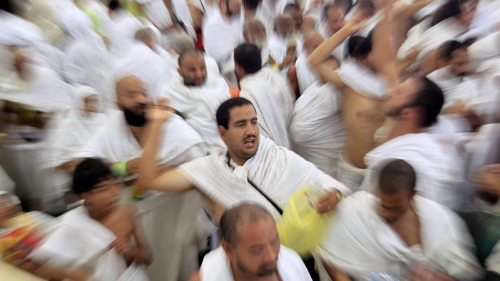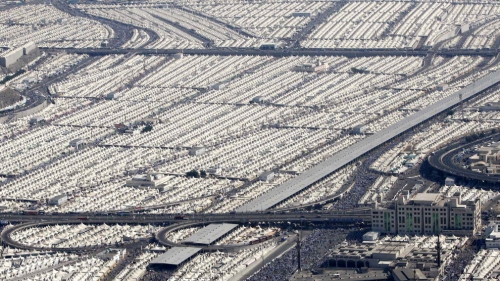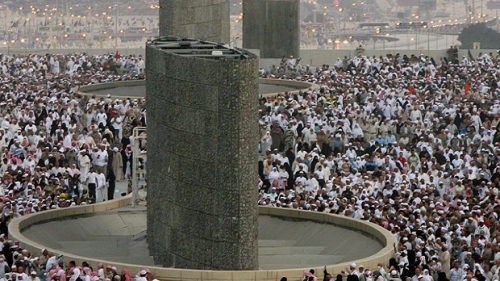Love the sinner, hate the sin in Islam

In Islam, we should love for all people to enjoy the same goodness we love for ourselves.
Anas ibn Malik reported: The Messenger of Allah, peace and blessings be upon him, said:
لَا يُؤْمِنُ أَحَدُكُمْ حَتَّى يُحِبَّ لِأَخِيهِ أَوْ قَالَ لِجَارِهِ مَا يُحِبُّ لِنَفْسِهِ
None of you has faith until he loves for his brother or his neighbor what he loves for himself.
Source: Sahih Muslim 45, Grade: Sahih
An-Nawawi comments on this tradition, saying:
الأولى أن يحمل ذلك على عموم الأخوة حتى يشمل الكافر والمسلم فيحب لأخيه الكافر ما يحب لنفسه من دخوله في الإسلام كما يحب لأخيه المسلم دوامه على الإسلام ولهذا كان الدعاء بالهداية للكافر مستحبا والمراد بالمحبة إرادة الخير والمنفعة ثم المراد المحبة الدينية لا المحبة البشرية
This is interpreted as brotherhood in general, such that it includes the disbeliever and the Muslim. So he should love for his brother, the disbeliever, what he loves for himself which is his entering Islam, just as he should love for his brother Muslim that he remains in Islam. For this reason, it is recommended to supplicate for the disbeliever to be guided. The meaning of love here is an intention for good and benefit, and this meaning is religious love, not human love.
Source: Sharh Arba’een An-Nawawi 13
Hamza Muhammad Qasim writes:
الأولى أن يحمل قوله حتى يحب لأخيه على عموم الأخوة حتى يشمل الكافر و المسلم فيحب لأخيه الكافر ما يحب لنفسه من الدخول في الإسلام ولذلك ندب الدعاء له بالهداية وقد كان النبي صلى الله عليه وسلم يدعو لكفار قريش بالخير و يحبه لهم و يقول اللهم اهد قومي فإنهم لا يعلمون ومما يؤكد أن المراد محبة الخير للناس جميعاً لا فرق بين مسلم وكافر قوله صلى الله عليه وسلم أفضل الإيمان أن تحب للناس ما تحب لنفسك و تكره لهم ما تكره لنفسك
The Prophet’s saying to love for his brother what he loves for himself is interpreted as universal brotherhood, such that it includes the disbeliever and the Muslim, and he should love for his brother the disbelievers what he loves for himself which is his entering Islam. For this reason it is recommended to supplicate for their guidance. The Prophet invited the unbelievers of the Quraish to goodness and he loved good for them. He would say: O Allah, guide my people for they do not know. This confirms that the meaning is to love good for all people. There is no difference between a Muslim and a disbeliever in his saying that the best faith is to love for people what you love for yourself and to hate for people what you hate for yourself.
Source: Manar Al-Qari 1/91
This love for people means we should treat other people the way we would love to be treated by them.
Abdullah ibn Amr reported: The Messenger of Allah, peace and blessings be upon him, said:
مَنْ أَحَبَّ أَنْ يُزَحْزَحَ عَنْ النَّارِ وَيَدْخُلَ الْجَنَّةَ فَلْتُدْرِكْهُ مَنِيَّتُهُ وَهُوَ يُؤْمِنُ بِاللَّهِ وَالْيَوْمِ الْآخِرِ وَيَأْتِي إِلَى النَّاسِ مَا يُحِبُّ أَنْ يُؤْتَى إِلَيْهِ
Whoever would love to be delivered from the Hellfire and entered into Paradise, then let him die with faith in Allah and the Last Day, and let him treat the people the way he would love to be treated.
Source: Sahih Muslim 1844, Grade: Sahih
Abu Muntafiq reported: The Messenger of Allah, peace and blessings be upon him, said:
وَانْظُرْ مَا تُحِبُّ لِلنَّاسِ أَنْ يَأْتُوهُ إِلَيْكَ فَافْعَلْهُ بِهِمْ وَمَا تَكْرَهُ أَنْ يَأْتُوهُ إِلَيْكَ فَذَرْهُمْ مِنْهُ
Look at however you would love for the people to treat you, then treat them that way. However you hate for the people to treat you, then do not treat them that way.
Source: Al-Mu’jam Al-Kabeer 15833, Grade: Sahih
Al-Ghazali writes:
كلما عملت بالناس اجعله كما ترضى لنفسك منهم لأنه لا يكمل إيمان العبد حتى يحب لسائر الناس ما يحب لنفسه
Every time you deal with people, treat them as you would be pleased to be treated by them, for the faith of a servant is not complete until he loves for all people what he loves for himself.
Source: Ayyuhal Walad 145
Part of loving other people in this way is to hate for them to harm themselves and others through their sins.
Abu Al-Mughirah reported: The Messenger of Allah, peace and blessings be upon him, said:
وَتُحِبُّ لِلنَّاسِ مَا تُحِبُّ أَنْ يُؤْتَى إِلَيْكَ وَتَكْرَهُ لَهُمْ مَا تَكْرَهُ أَنْ يُؤْتَى إِلَيْكَ
Love for people what you would love for yourself, and hate for people what you would hate for yourself.
Source: Musnad Ahmad 15453, Grade: Hasan
Al-Kirmani said:
وَمِنَ الْإِيمَانِ أَيْضًا أَنْ يُبْغِضَ لِأَخِيهِ مَا يُبْغِضُ لِنَفْسِهِ مِنَ الشَّرِّ
It is also part of faith to hate for one’s brother what he hates for himself.
Source: Fath ul-Bari 1/74
For this reason, all of the prophets would sincerely advise their people and they were greatly concerned about their welfare in this life and in the Hereafter.
Allah said:
أُبَلِّغُكُمْ رِسَالَاتِ رَبِّي وَأَنصَحُ لَكُمْ
Noah said: I convey to you the messages of my Lord and I sincerely advise you.
Surat Al-A’raf 7:62
And Allah said:
وَإِن تَوَلَّوْا فَإِنِّي أَخَافُ عَلَيْكُمْ عَذَابَ يَوْمٍ كَبِيرٍ
The Messenger said: If you turn away, then indeed I fear for you the punishment of a great Day.
Surat Hud 11:3
Therefore, we should love goodness for sinners and consequently hate to see them sinning. In other words, we should love the sinner and hate the sin. This the correct way to “hate for the sake of Allah” as it was the method of the righteous predecessors (salaf as-salih) in dealing with people who disobeyed Allah and His Messenger.
Ibn Rajab writes:
قَالَ بَعْضُ الصَّالِحِينَ مِنَ السَّلَفِ أَهْلُ الْمَحَبَّةِ لِلَّهِ نَظَرُوا بِنُورِ اللَّهِ وَعَطَفُوا عَلَى أَهْلِ مَعَاصِي اللَّهِ مَقَتُوا أَعْمَالَهُمْ وَعَطَفُوا عَلَيْهِمْ لِيُزِيلُوهُمْ بِالْمَوَاعِظِ عَنْ فِعَالِهِمْ وَأَشْفَقُوا عَلَى أَبْدَانِهِمْ مِنَ النَّارِ وَلَا يَكُونُ الْمُؤْمِنُ مُؤْمِنًا حَقًّا حَتَّى يَرْضَى لِلنَّاسِ مَا يَرْضَاهُ لِنَفْسِهِ
Some of the righteous predecessors said: The people who love Allah look by the light of Allah, and they are compassionate with those who disobey Allah. They hate their actions but show mercy to them so that through their admonitions they might leave their actions. They are afraid that the Hellfire will consume their bodies. The believer will not truly be a believer until he is pleased for people to have what he is pleased for himself.
Source: Jami’ Ulum wal-Hikam 13
We can find this distinction implied in the Quran. For example, Allah tells us that it is the characteristic of faith to hate unbelief, sin, and disobedience to Allah.
Allah said:
وَلَٰكِنَّ اللَّهَ حَبَّبَ إِلَيْكُمُ الْإِيمَانَ وَزَيَّنَهُ فِي قُلُوبِكُمْ وَكَرَّهَ إِلَيْكُمُ الْكُفْرَ وَالْفُسُوقَ وَالْعِصْيَانَ ۚ أُولَٰئِكَ هُمُ الرَّاشِدُونَ
Rather, Allah has made the faith beloved to you and has made it pleasing in your hearts and He has made hateful to you disbelief, defiance, and disobedience. Those are the rightly guided.
Surat Al-Hujurat 49:7
Allah has made evil deeds in the abstract hateful to the believers but He did not say the same about the sinners themselves.
Moreover, the prophet Lot, peace be upon him, was sent to his people as a trustworthy messenger and sincere advisor. Even so, Lot made clear to them that he hated their evil deeds.
Allah said:
قَالَ إِنِّي لِعَمَلِكُم مِّنَ الْقَالِينَ
Lot said: Verily, I am among those who find your deeds reprehensible.
Surat Ash-Shu’ara 26:
Lot’s sincerity and concern for his people made him detest their evil deeds and the manner in which they were harming themselves and others.
What we must avoid is extremism in hatred to the point that we desire destruction, ruin, and the removal of blessings from others.
Umar ibn Al-Khattab, may Allah be pleased with him, said:
لاَ يَكُنْ حُبُّكَ كَلَفًا وَلاَ بُغْضُكَ تَلَفًا
Let not your hatred be destruction.
It was said, “How is that?” Umar said:
وَإِذَا أَبْغَضْتَ أَحْبَبْتَ لِصَاحِبِكَ التَّلَف
When you hate someone, you would love to see your companion perish.
Source: Al-Adab Al-Mufrad 1322, Grade: Sahih
The Prophet warned us that this type of hatred is a “razor” that destroys the religion of its adherents.
Az-Zubair ibn Awwam reported: The Messenger of Allah, peace and blessings be upon him, said:
دَبَّ إِلَيْكُمْ دَاءُ الْأُمَمِ قَبْلَكُمْ الْحَسَدُ وَالْبَغْضَاءُ وَالْبَغْضَاءُ هِيَ الْحَالِقَةُ حَالِقَةُ الدِّينِ لَا حَالِقَةُ الشَّعَرِ
There have come to you the diseases of the nations before you: envy and hatred, and hatred is the razor. It shaves the religion and it does not shave hair.
Source: Musnad Ahmad 1415, Grade: Sahih
We should focus our hatred on evil deeds in the abstract as much as possible in order to avoid this type of destructive hatred. However, since we are imperfect human beings it is inevitable that we will feel some hatred for others over the course of our lives, in which case we should try to reduce this hatred as best as we can. We should never hate others in an absolute manner.
Abu Huraira reported: The Messenger of Allah, peace and blessings be upon him, said:
وَأَبْغِضْ بَغِيضَكَ هَوْنًا مَا عَسَى أَنْ يَكُونَ حَبِيبَكَ يَوْمًا مَا
Hate whom you hate mildly, for perhaps he will become your beloved someday.
Source: Sunan At-Tirmidhi 1997, Grade: Sahih
Indeed, the Muslims should be at the forefront of humanity in spreading love, peace, and good will towards others.
We ask Allah to make us among the merciful, the compassionate, and the patient, and to purify us and protect us from the disease of malicious hatred.
Success comes from Allah, and Allah knows best.
( Reprinted from Faith in Allah )

















